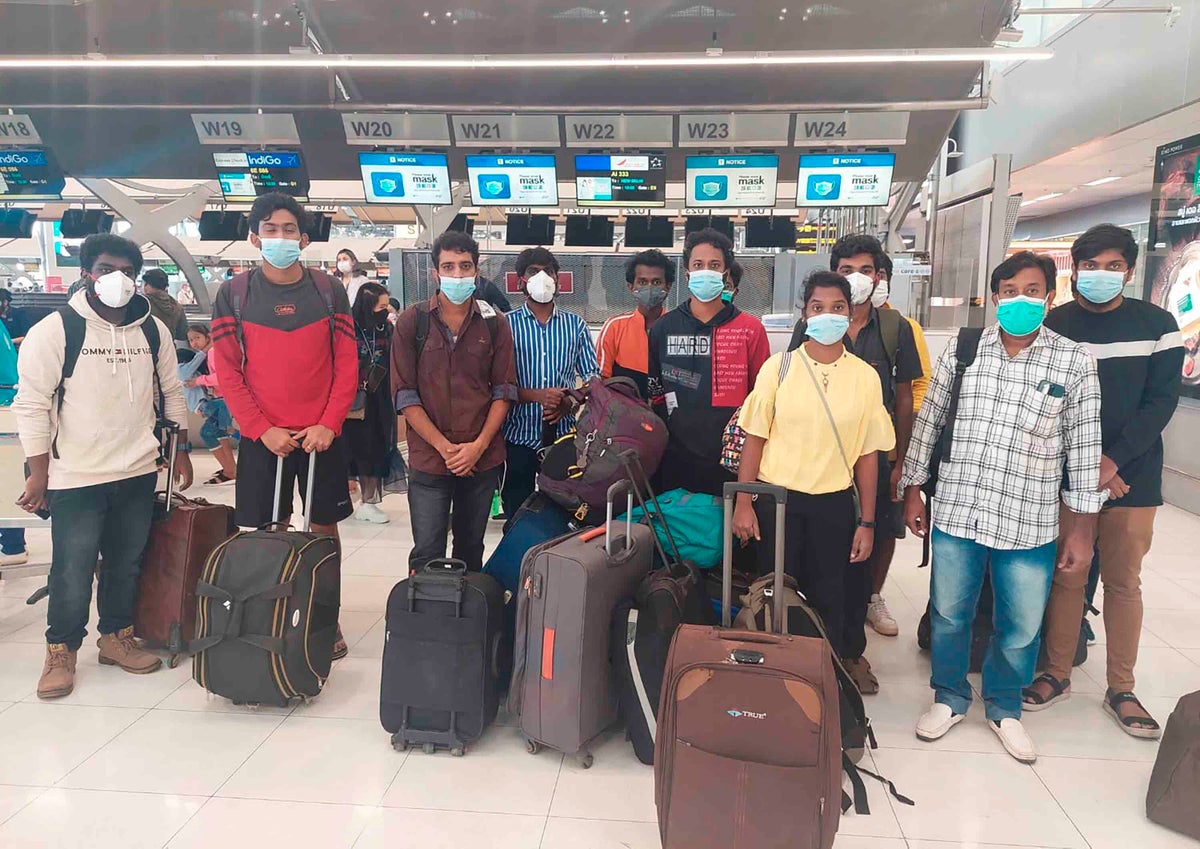
India's government on Friday said it has rescued about 130 Indian workers from Myanmar, Laos and Cambodia after they were lured by agents for fake job opportunities in the information technology sector in Thailand.
Arindam Bagchi, the External Affairs Ministry spokesperson, said some fraudulent IT companies appear to be engaged in digital scamming and forged cryptocurrencies. The Indian workers were held captive and forced to commit cyber fraud, he told reporters.
The companies appear to be operating through agents in Dubai, Bangkok and some Indian cities and were recruiting Indian workers through social media advertisements for fake highly lucrative jobs in Thailand, he said.
Many of the workers were taken illegally across the border into an area of Myanmar that is difficult to access because of the local security situation, Bagchi said.
He said nearly 50 workers have been brought back to India from Myanmar, while some others were still in Myanmar police custody for questioning because they illegally entered the country without visas.
He said 80 other Indian workers have been rescued from Cambodia and Laos.
Last month, M.K. Stalin, the top elected official of India's southern Tamil Nadu state, said in a letter to Prime Minister Narendra Modi that 300 Indians, including around 50 Tamils from the state, were being held captive in Myanmar.
Citizens of other countries in the region have suffered in similar scams.
On Thursday, 21 Malaysians rescued from human traffickers in Cambodia and Laos returned home. Foreign Minister Saifuddin Abdullah said the government has now rescued 273 people out of 401 reported missing in Cambodia, Laos, Myanmar and Thailand. Most have returned except for 60 still in immigration detention centers in those countries who are waiting to be processed, he said.
A U.N. envoy has said the scam networks, which often have links to transnational organized crime, are set up in countries with weak law enforcement, attracting educated young workers with promises of high earnings. The workers are then subject to isolation and the threat of violence unless they succeed in cheating victims reached by phone into transferring payments into overseas bank accounts.







